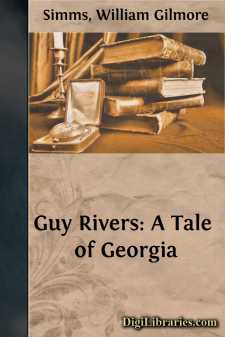Categories
- Antiques & Collectibles 13
- Architecture 36
- Art 48
- Bibles 22
- Biography & Autobiography 813
- Body, Mind & Spirit 142
- Business & Economics 28
- Children's Books 14
- Children's Fiction 11
- Computers 4
- Cooking 94
- Crafts & Hobbies 4
- Drama 346
- Education 46
- Family & Relationships 57
- Fiction 11828
- Games 19
- Gardening 17
- Health & Fitness 34
- History 1377
- House & Home 1
- Humor 147
- Juvenile Fiction 1873
- Juvenile Nonfiction 202
- Language Arts & Disciplines 88
- Law 16
- Literary Collections 686
- Literary Criticism 179
- Mathematics 13
- Medical 41
- Music 40
- Nature 179
- Non-Classifiable 1768
- Performing Arts 7
- Periodicals 1453
- Philosophy 64
- Photography 2
- Poetry 896
- Political Science 203
- Psychology 42
- Reference 154
- Religion 513
- Science 126
- Self-Help 84
- Social Science 81
- Sports & Recreation 34
- Study Aids 3
- Technology & Engineering 59
- Transportation 23
- Travel 463
- True Crime 29
The Life of Francis Marion
Categories:
Description:
Excerpt
Chapter 1.
Introduction—The Huguenots in South Carolina.
The name of FRANCIS MARION is identified, in the history of South Carolina, his parent state, with all that is pleasing and exciting in romance. He is, par excellence, the famous partisan of that region. While Sumter stands conspicuous for bold daring, fearless intrepidity and always resolute behavior; while Lee takes eminent rank as a gallant Captain of Cavalry, the eye and the wing of the southern liberating army under Greene; Marion is proverbially the great master of strategy—the wily fox of the swamps—never to be caught, never to be followed,—yet always at hand, with unconjectured promptness, at the moment when he is least feared and is least to be expected. His pre-eminence in this peculiar and most difficult of all kinds of warfare, is not to be disputed. In his native region he has no competitor, and it is scarcely possible to compute the vast influence which he possessed and exercised over the minds and feelings of the people of Carolina, simply through his own resources, at a period most adverse to their fortunes, and when the cause of their liberties, everywhere endangered, was almost everywhere considered hopeless. His name was the great rallying cry of the yeoman in battle—the word that promised hope—that cheered the desponding patriot—that startled, and made to pause in his career of recklessness and blood, the cruel and sanguinary tory. Unprovided with the means of warfare, no less than of comfort—wanting equally in food and weapons—we find him supplying the one deficiency with a cheerful courage that never failed; the other with the resources of a genius that seemed to wish for nothing from without. With a force constantly fluctuating and feeble in consequence of the most ordinary necessities—half naked men, feeding upon unsalted pottage,—forced to fight the enemy by day, and look after their little families, concealed in swamp or thicket, by night—he still contrived,—one knows not well how,—to keep alive and bright the sacred fire of his country's liberties, at moments when they seemed to have no other champion. In this toil and watch, taken cheerfully and with spirits that never appeared to lose their tone and elasticity, tradition ascribes to him a series of achievements, which, if they were small in comparison with the great performances of European war, were scarcely less important; and which, if they sometimes transcend belief, must yet always delight the imagination. His adventures have given a rich coloring to fable, and have stimulated its performances. The language of song and story has been employed to do them honor, and our children are taught, in lessons that they love, to lisp the deeds and the patriotism of his band. "Marion"—"Marion's Brigade" and "Marion's men", have passed into household words, which the young utter with an enthusiasm much more confiding than that which they yield to the wondrous performances of Greece and Ilium. They recall, when spoken, a long and delightful series of brilliant exploits, wild adventures, by day and night, in swamp and thicket, sudden and strange manoeuvres, and a generous, unwavering ardor, that never found any peril too hazardous, or any suffering too unendurable....





